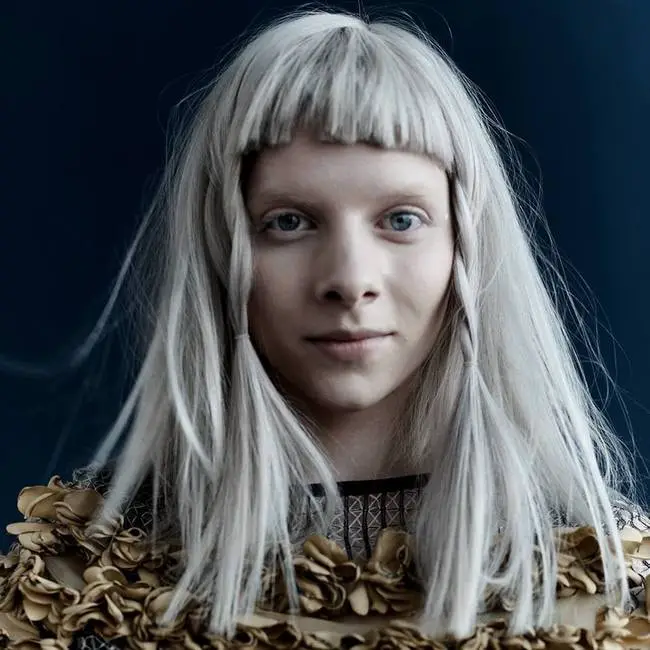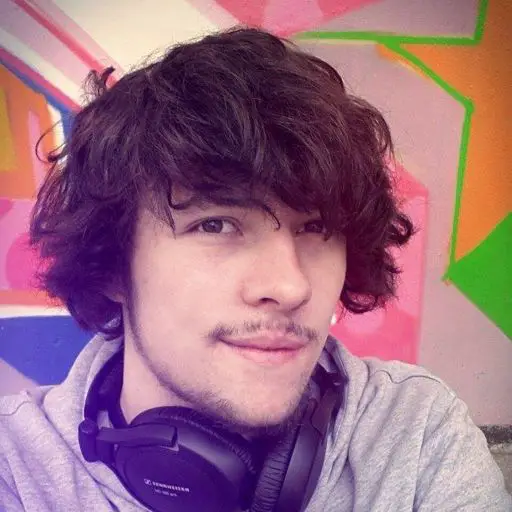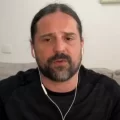Andreas Bourani Biography
Andreas Bourani is a German singer-songwriter born on 2 November 1983 in Augsburg, Germany. In May 2015 he became a judge in the fifth season of The Voice of Germany after replacing Sunrise Avenue lead vocalist Samu Haber. He is the official voice of Maui in the German dub of Moana.
He attended St. Stephan for his high school and later joined the private music school Downtown Music Institute. In 2008 he moved to Berlin from Munich. In 2010 he received a recording contract with Universal Music and performed as an opening act for Philipp Poisel and Culcha Candela on their 2010 arena tours.
Andreas Bourani Age
Andreas was born on 2nd November 1983 in Augsburg, Germany (34 years as at 2018)
Andreas Bourani Height
Andreas is 189 cm tall/ 6ft 2 inches
Andreas Bourani Parents
Andreas was born to Egyptian parents but was adopted by a family in Augsburg, Germany.
Andreas Bourani Albums
In June 2011 Bourani released his debut album ‘Staub & Fantasie’ which reached number 23 on the German Albums Chart and spawned the hit single “Nur in meinem Kopf” which became a top 20 hit in Austria, Germany, and Switzerland. In April 2013, he was nominated for the German Grammy, GEMA, in the Best Pop Text category.
In May 2014 he released his second studio album ‘Hey’ and spawned the single “Auf uns” which topped the German and Austrian Singles Chart. The song was also used in the trailer for the film Die Mannschaft which documents the German National Football Team’s win of the 2014 FIFA World Cup.
Andreas BouraniAndreas Bourani Songs
- Auf Uns
- Hey
- Auf anderen Wegen
- Ultraleicht
- Nur in Meinem Kopf
- Eisberg
- Voll gerne
- Nimm meine Hand
- Füreinander gemacht
- Was tut dir gut
- Wieder am Leben
- Alles beim Alten
- Ein Ende nach dem andern
- Alles nur in meinem Kopf
- Fremder Planet
- Wunder
- Delirium
- Zusammen untergegangen
- Refugium
- So leicht so schwer
- Mit der Zeit
- Du lässt dich gehen
- Eden für dich
- Du und ich und sie
- Für Dich
- Funkelperlenaugen
- Zurück zu dir
- Sein
- Glück
- Welt der Wunder
- Die Schöne und das Biest
- Bei Dir
Andreas Bourani Hey
Andreas Bourani Awards
- Echo Award for Radio-Echo,
- Bambi – German Music,
- Echo Award for Best National Rock/Pop Male Artist
Andreas Bourani YouTube
Bourani doesn’t have a YT Chanel but you can watch his videos via this music video.
Andreas Bourani Facebook
Andreas Bourani Instagram
https://www.instagram.com/p/Boeb26jgiaq/?utm_source=ig_web_copy_link
Andreas Bourani Video
Andreas Bourani Interview
Interviewer: Andreas, your lyrics leave a lot of room for interpretation. Do you agree with me when I say: They are not pure love songs?
Andreas Bourani: Yes, indeed. I would even say that I have never written a love song.
Interviewer: Oh?
Andreas Bourani: I’ve always had problems with that, because love songs sound kind of cheesy in German. And hit. Love is sung in the song, but I always resisted. For example, my song “Ultralight” is about connecting to a person, but it’s not a love story.
Interviewer: But it’s about a specific person?
Andreas Bourani: Yes, yes. every connection has something to do with love. But it is not a love song.
Interviewer: Separation songs are also love songs?
Andreas Bourani: Well, when love is over, it’s more about other emotions. The only love song that I find really successful is “Der Weg” by Herbert Grönemeyer.
Interviewer: What do you like about it?
Andreas Bourani: A terrific text with depth. You can feel the deep connection to a person. And I always think: If I can not handle that, then I can not even be allowed to write a love song.
Interviewer: “In other ways” …
Andreas Bourani: … is about two people who are no longer comfortable in their relationship. It has to do with pain and letting go. Letting go I addressed much more.
Interviewer: For example, with “Hey”?
Andreas Bourani: Exactly. It’s also about not having to be perfect anymore.
Interviewer: Is “Everything Old” about someone in search of his identity?
Andreas Bourani: too. It also says, “I belong wholeheartedly to where I am not.”
Interviewer: Eben!
Andreas Bourani: That means: one is driven, constantly searching for a place where one is not, because one must continue. For me, identity means not going back in time. Identity is a matter of design. I believe in the design ability of the personality. Also to the change. And that is something that lies in the future.
Interviewer: This song also says, “Maybe I’ll be an eternal seeker.”
Andreas Bourani: Yes, that’s in the future. I believe that identity has nothing to do with arriving. I am convinced that we humans are constantly changing and holding it in the hands of who we want to be.
Interviewer: Are you a person who does not really know where his roots are?
Andreas Bourani: I thought about that. But I’ve come to the conclusion that it would not change my life, even if I knew it. If I knew now that I’m half Turkish or whatever – and I have no information at all – then that would only be a cultural reference for me, but it did not significantly influence me. I think it’s a pigeonhole thinking to say there’s something in your genes. That would serve stereotypes.
Interviewer: Origin has nothing to do with stereotypes.
Andreas Bourani: I was born in Augsburg. So. I grew up there, I was raised Catholic. If I now realize I have a father from Hawaii, then I would see what is typical for Hawaiians. Oh, the feeling of rhythm, that’s what I have from the Hawaiians. I wonder how the character-forming influence on me.
Interviewer: Do you never think about who you could have been if you had grown up with your birth parents?
Andreas Bourani: No. That does not get me any further. I prefer to focus on who I can be, rather than who I could have been.
Interviewer: You grew up as Andreas Stiegelmair.
Andreas Bourani: Yes, that’s the name of my parents.
Interviewer: Why did you later name Bourani?
Andreas Bourani: Because I tried to keep the name of my parents out of the public. Bourani is my birth name, it’s in my ID card. I identify more with the name Bourani, and it also sounds a little better.
Interviewer: Being alive again is about shaking off the past. Does not that have anything to do with the fact that you have a name?
Andreas Bourani: Yet it has nothing to do with identity, but with my philosophy of life. You can only change yourself if you get rid of things. This has nothing to do with flight, but with recognition of life. Life is a river, we are people who are changing. For me it was like after the success of the first record I was glad to let go.
Interviewer: What?
Andreas Bourani: My doggedness, for example, doggedly clinging to a dream, enduring setbacks, having doubts about oneself, existential fears because one wants to live from art. It became clear to me: letting go of the past is a liberation.
Interviewer: I saw you 20 years ago at the ZDF casting show. At that time people thought, oh, a second version of Xavier Naidoo. Later, you appeared with a very own expression. What happened?
Andreas Bourani: I’ve been through a process, a process of self-discovery, and chafing at who I am, what I have to say.
Interviewer: Was it difficult to prevail with this distinctive baritone voice?
Andreas Bourani: No. I’ve always thought of it: How good do you have to be that it works? I’ve been more focused on getting better at what I want to do.
Interviewer: What does the fabulous success mean to you?
Andreas Bourani: I am very grateful for that. Those were some very nice moments – at the World Cup back then, the duet with Sido.
Interviewer: When did you realize for the first time that you belong to the first group of German pop music?
Andreas Bourani: The verdict is always different. My job is to write music that is good enough to reach many people.
Interviewer: You also participated in “Sing my song”.
Andreas Bourani: It was exciting to meet, for example, Hartmut Engler, who had been successful with Pur 15 years before. Or the princes with whom I grew up.
Interviewer: Did anyone particularly surprise you?
Andreas Bourani: Yes, Xavier Naidoo, who sang my title “On Us.” I had written the song for a circle of friends, and Xavier returned it to the show.
Interviewer: How far back?
Andreas Bourani: It’s about friends, with whom one sits at a table in the evening, drinks something and just bumps into life. That was a very emotional moment.
Source: General Anzeiger
About InformationCradle Editorial Staff
This Article is produced by InformationCradle Editorial Staff which is a team of expert writers and editors led by Josphat Gachie and trusted by millions of readers worldwide.
We endeavor to keep our content True, Accurate, Correct, Original and Up to Date. For complain, correction or an update, please send us an email to informationcradle@gmail.com. We promise to take corrective measures to the best of our abilities.






